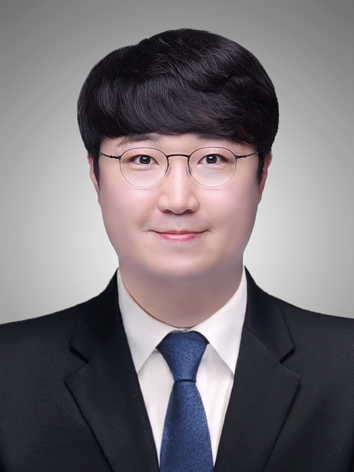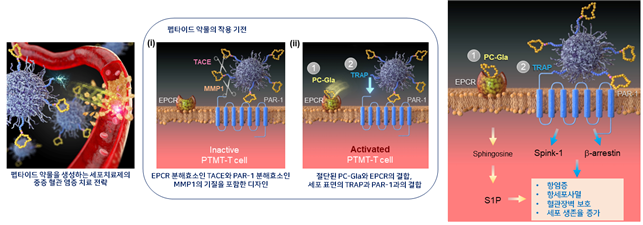Professor Wonhwa Lee’s Team (Department of Chemistry) Developed a New Treatment Techniques to Improve Severe Respiratory Infectious Diseases
- Development of Cell Therapy Drugs that Produce Peptide Drugs in the Body
and Verification of Efficacy in Improving Severe Infectious Diseases
- Development of Treatment Techniques for Producing and Releasing
Self-T-Cell-Based Peptide Drugs
- Joint Research with Professor Hee Ho Park’s Team at Hanyang University
and Dr. Hongnam Kim’s at KIST

SKKU (President Dong Ryeol Shin) announced that a research team led by Professor Wonhwa Lee from the Depart of Chemistry has developed a new treatment technology that creates peptide drugs that can improve severe respiratory infections diseases through joint research with Professor Hee Ho Park’s research team at Hanyang University and Dr. Hongnam Kim’s team at KIST.
Xigris (Activated Proteins C, APC), the only FDA-approved treatment for sepsis, was withdrawn from the market in 2011 due to its insufficient efficacy, short half-life, and side effects. Although the cause of death of infectious diseases such as SARS, MERS, and COVID-19 has been found to be septic shock caused by cytokine storms, oxygen therapy and steroids are the only ways to treat patients with severe symptoms. In order to cope with post-pandemic diseases, it is urgent to develop drugs that can treat severe diseases, rather than develop drugs that act directly on infectious sources.
Accordingly, the research team conducted a joint study with the researchers of Professor Junhong Ahn of Yeungnam University Hospital and analyzed samples of COVID-19 patients to find biomarkers for diagnosing severe diseases in patients with poor prognosis, as well as establishing a new treatment strategy with biofactory technology. Biofactory is a new concept that the research team made to express peptide drugs on the surface in cells and circulate through the body by cleaving enzymes in order to overcome the limitations of peptide drugs.

[Image] Mechanism of action of peptide drug-producing cell therapy to treat severe infectious diseases
The efficacy of inhibiting serious vascular inflammatory reactions was verified by simultaneously expressing peptides that can activate vascular cell protection mechanisms in T cells separated from blood and the substrate of enzymes that cut receptors. In addition, in order to overcome the limitations of experimental animals with different immune and inflammatory reactions from the human body, it was revealed that the effectiveness of peptide drugs can be identified and clinically utilized by implementing the condition of severe COVID-19 patients in a 3-dimensional blood vessel structure.
Professor Lee said, “In order to respond to post-pandemic diseases in the future, it is important to develop a treatment specific to infectious agents, but we need to predict prognosis and ARDS and Septic shock to improve mortality. Because there is an urgent need to develop a new treatment strategy other than steroid drugs, which have serious side effects during oxygen therapy and long-term prescription, this research result presents a new paradigm and is the first immune cell therapy that can be used for post-pandemic severe diseases.”
Researchers said, “Recently, we have developed a treatment that improves the mortality rate of high-risk groups with underlying diseases at a time when they are still suffering from coronavirus mutations worldwide. It is a cell therapy product that produces peptide drugs designed with strategies to increase the stability of the effective domain and action point EPCR and PAR-1 receptor action of Lilly’s Xigris (APC), which can be expanded to various severe inflammatory diseases. This is a different strategy from the FDA-approved CAR-T cell therapy, and is significant in that it has developed a new cell therapy platform that produces peptide drugs.”
This study was conducted with the support of the Beginning Independent Researcher Program, Mid-Career Researcher Program, and Basic Research Laboratory of the National Research Foundation of Korea, and the research results were published on June 25 in the prestigious international journal, Advanced Science (Impact Factor=16.806, Chemistry Multidisciplinary Top 7.02%).
※ Thesis name: Cleavage-Responsive Biofactory T Cells Suppress Infectious Diseases-Associated Hypercytokinemiady
※ Source of thesis: https://doi.org/10.1002/advs.202201883















